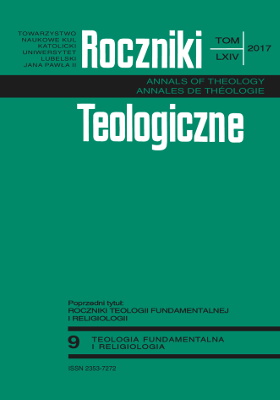Dni krzyżowe w polskiej religijności ludowej
Rogation Days in Polish Folk Religiosity
Author(s): Zdzisław KupisińskiSubject(s): Christian Theology and Religion, Theology and Religion, Systematic Theology
Published by: Towarzystwo Naukowe KUL & Katolicki Uniwersytet Lubelski Jana Pawła II
Keywords: Rogation Days; crosses and shrines; folk religiosity; supplicatory processions; prayers for the harvests
Summary/Abstract: In the liturgical calendar of the Catholic Church on the festivals of saints there is a number of customs and religious rituals related to the agrarian work. In the spring one of this kind of celebration in the folk religion was the Feast of St. Mark's (25.04), when people prayed for abundant harvest and protection from all natural disasters, as well as Rogation Days celebrated before the feast of the Ascension (Monday, Tuesday, Wednesday). These customs have their origins in the fifth century in Gaul (France), from the sixth century they were also practiced in Rome. During supplicatory procession the faithful stopped at the roadside chapels and crosses, chanting litanies, and from the ninth century this was “Litany of the Saints”, antiphons and psalms in honor of a patron saint or other saints who enjoyed a particular devotion in a given parish or diocese. The procession ended in a church, where Mass was celebrated.Currently in Poland the feast of the Ascension is celebrated on the Sunday before Pentecost. Rogation Days are also called days of prayer for good harvests and in the intention of countries suffering starvation. It is recommended to organize supplicatory processions and celebration of the votive Mass on Monday “in the period of sowing”, on Tuesday – “the sanctification of human labor” and on Wednesday – “for the hungry.”
Journal: Roczniki Teologiczne
- Issue Year: 64/2017
- Issue No: 9
- Page Range: 123-135
- Page Count: 13
- Language: Polish

